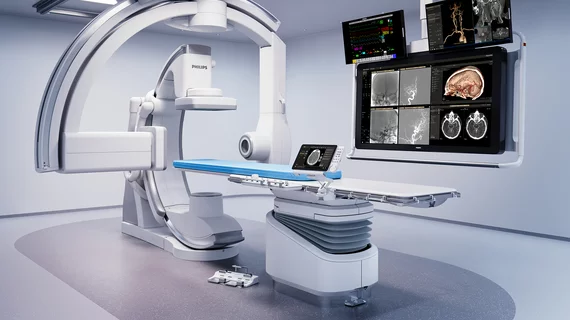Philips launches system to hasten stroke care delivery
Philips has introduced the Azurion neuro biplane enhancement to its image guided therapy system, aimed at improving neurovascular procedures—particularly for stroke interventions. Azurion is capable of producing 2D and 3D images, and the system facilitates faster decision-making by healthcare teams, ideally to mitigate brain damage caused by strokes.
The Azurion system optimizes procedure workflows by combining images for accurate diagnosis and precise treatment. Integrated with the Philips Neuro Suite software, the suite combines low-dose imaging with tools specifically designed to examine neurological function.
“Working closely with leading interventionists, we designed the latest Azurion neuro biplane to meet their requirements of superior patient care, optimized angio suite performance, and efficient return on investment,” Mark Stoffels, business leader of image guided therapy systems at Philips said in a statement. “Together, I am confident we can continue to reduce the impact of stroke, helping more patients to recover faster and reducing long-term impact on their health.”
Key features of the addition include table-side control, automatic beam rotation, and a new head immobilizer for enhanced stroke care precision. Moreover, AI is onboard to aid in the swift detection of clinically relevant findings.
The full system will be on display at the European Society of Radiology conference, running Feb. 28 to March 3 in Vienna, Austria.

